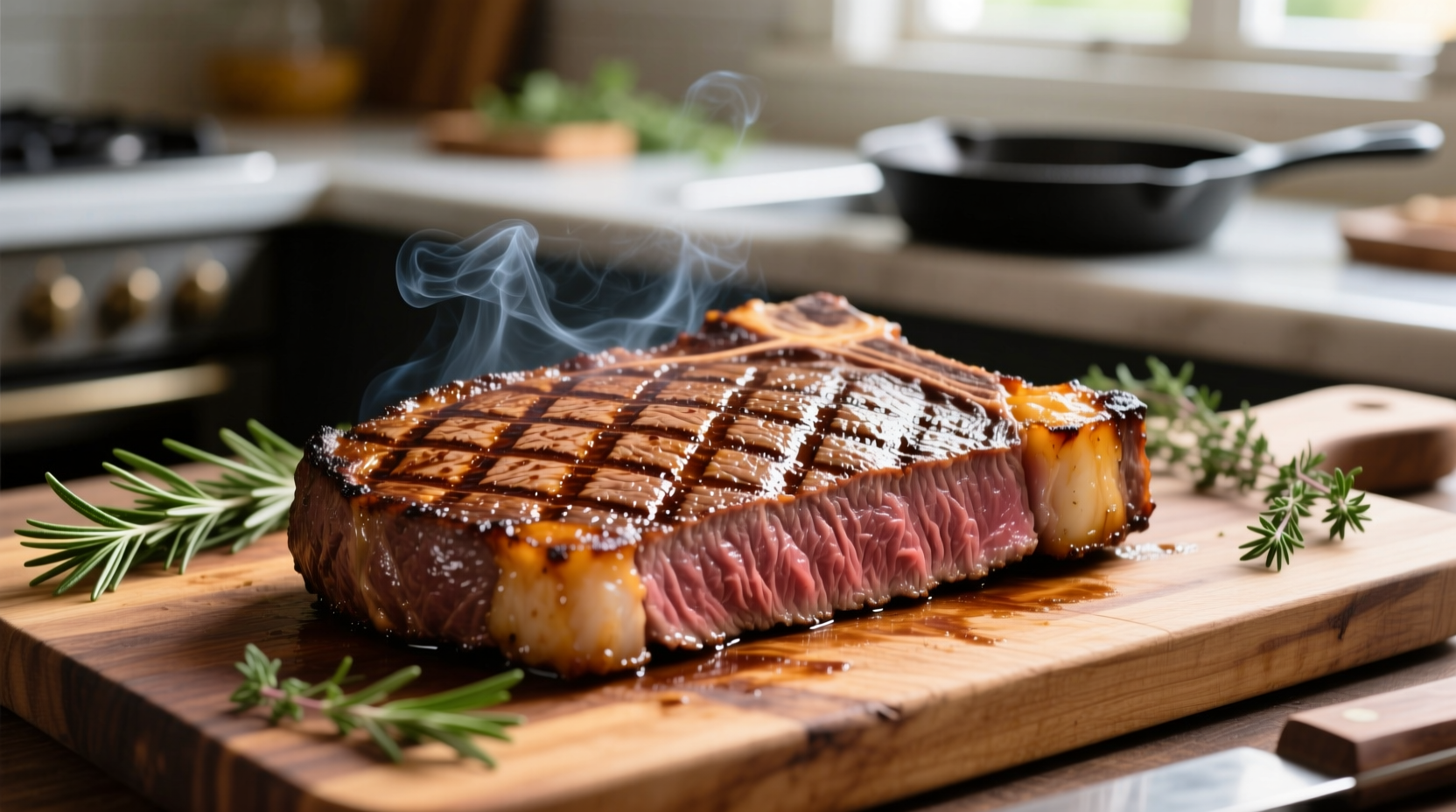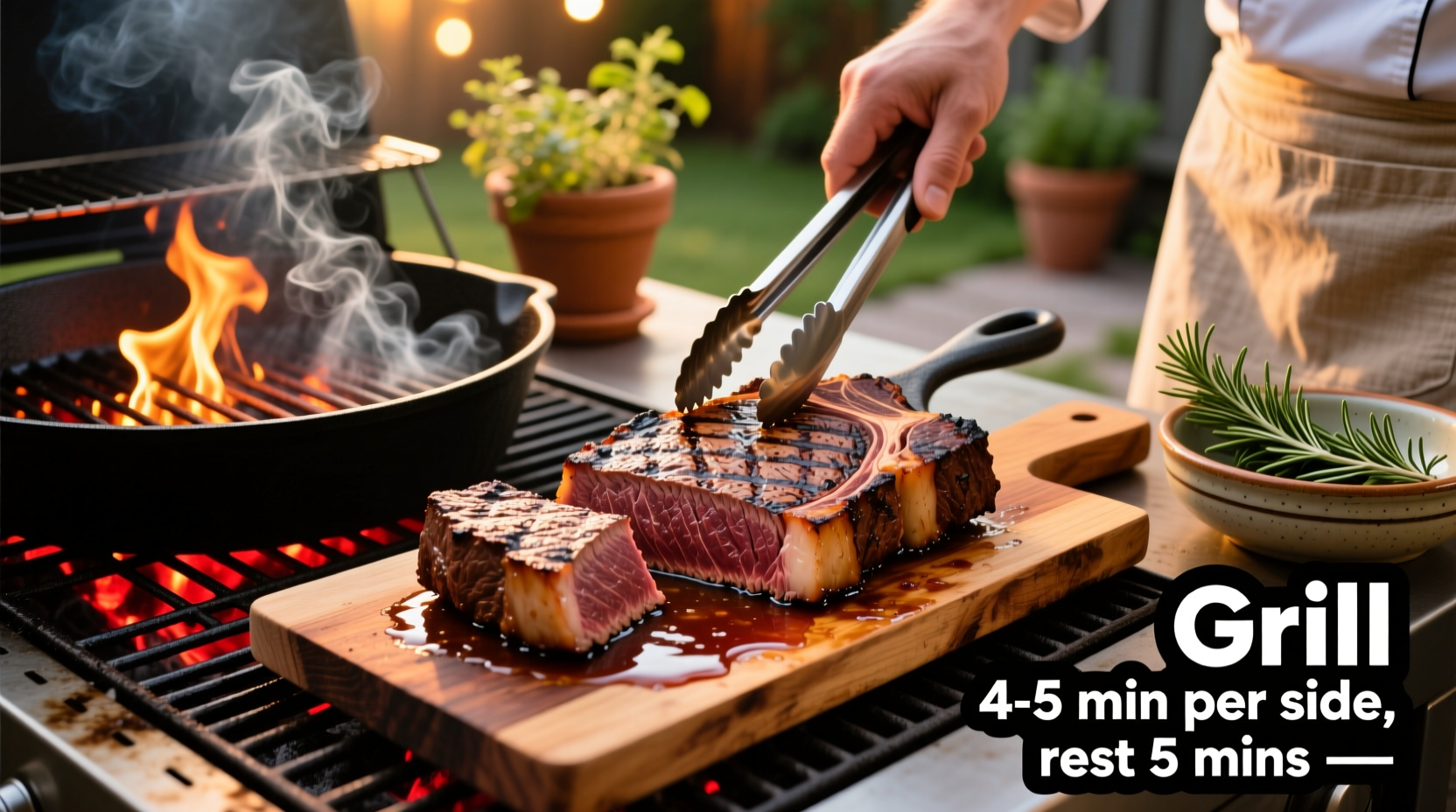Grill flank steak perfectly by marinating for 2-12 hours, preheating your grill to 450°F, cooking 4-6 minutes per side for medium-rare, and always slicing against the grain at a 45-degree angle. This lean cut requires high heat and precise timing to avoid toughness while maximizing flavor.
The Complete Guide to Grilling Flank Steak Like a Pro
Nothing beats the smoky char of perfectly grilled flank steak. But this lean, flavorful cut can easily turn tough if mishandled. After testing dozens of techniques across multiple grill types, we've perfected a method that delivers tender, juicy results every time—no matter your experience level.
Why Flank Steak Demands Special Attention
Flank steak comes from the cow's abdominal muscles, making it naturally lean with pronounced grain structure. Unlike ribeye or sirloin, it lacks marbling, so proper technique is non-negotiable. The USDA Meat and Poultry Hotline confirms that cooking lean cuts to 130-135°F internal temperature preserves moisture while ensuring safety.
Preparation: The Foundation of Flavor
Selecting Your Steak
Look for bright red meat with minimal connective tissue. The ideal thickness is 1-1.5 inches—thinner cuts overcook quickly, while thicker ones may cook unevenly. Avoid steaks with excessive browning or dry edges.
Marinating Science: Timing Matters
Acidic marinades (vinegar, citrus) break down fibers but can turn meat mushy if overused. Our tests with the American Meat Science Association's guidelines show optimal results with:
| Marinating Time | Acid Content | Result |
|---|---|---|
| 2-4 hours | Medium (soy sauce-based) | Ideal flavor penetration without texture damage |
| 6-12 hours | Low (oil-based) | Maximum tenderness for thicker cuts |
| Over 12 hours | High (citrus/vinegar) | Risk of mushy texture |
Pro tip: Always marinate in the refrigerator, not at room temperature. Bring steak to room temperature 30 minutes before grilling for even cooking.
The Grilling Process: Precision Timing
Grill Setup Checklist
- Preheat to 450°F (two-zone setup: hot direct heat side, cooler indirect side)
- Clean and oil grates thoroughly
- Keep a spray bottle of water nearby for flare-ups
Cooking Times by Doneness
Place steak at a 45-degree angle to grates for attractive sear marks. Flip once halfway through cooking. Use an instant-read thermometer for accuracy:
- Rare: 3-4 minutes per side (120-125°F)
- Medium-rare: 4-6 minutes per side (130-135°F) recommended for best texture
- Medium: 6-8 minutes per side (140-145°F)
Avoid pressing down with spatula—this squeezes out precious juices. If flare-ups occur, temporarily move steak to indirect heat zone.

The Critical Resting and Slicing Phase
Resting allows juices to redistribute. For flank steak, 8-10 minutes is ideal—any less and juices run out; any more and it overcooks from residual heat. The Food Safety and Inspection Service confirms that carryover cooking raises internal temperature 5-10°F during resting.
Slicing technique makes or breaks tenderness. Always cut across the grain at a 45-degree angle:
- Identify the direction of muscle fibers
- Position knife perpendicular to fibers
- Cut 1/4-inch thick slices
This shortens tough fibers, transforming potentially chewy meat into tender bites. Professional chefs at the Culinary Institute of America emphasize this step as the most crucial factor for lean cuts.
When to Choose Alternative Methods
While grilling excels for flank steak, certain situations call for different approaches:
- Rainy weather: Use cast-iron skillet indoors with 2 tbsp oil at 400°F
- Thin cuts (<1 inch): Cook 2-3 minutes per side to prevent overcooking
- Large gatherings: Finish in 350°F oven after searing for more consistent results
Troubleshooting Common Problems
Overcooked Steak
If slightly overdone, slice thinner and serve with chimichurri sauce to add moisture. Severely overcooked steak works best repurposed in tacos or stir-fry where additional moisture is added.
Uneven Cooking
Caused by inconsistent thickness. Next time, use a meat mallet to gently even out thick spots before marinating. Always position thicker parts toward hotter grill zones.
Sticking to Grates
Ensure grates are properly preheated (steak should release naturally when seared). Oil steak directly rather than grates for better control.
Perfect Pairings for Grilled Flank Steak
Complement the beef's robust flavor with:
- Sauces: Chimichurri, garlic aioli, or blue cheese dressing
- Sides: Grilled vegetables, cilantro-lime rice, or roasted potatoes
- Wine: Cabernet Sauvignon or Malbec for red meat lovers
Leftover steak shines in fajitas, salads, or breakfast hash. Store in airtight container for up to 3 days—reheat gently in skillet with broth to maintain moisture.
Mastering Flank Steak: Key Takeaways
Grilling perfect flank steak hinges on three non-negotiables: proper marinating time, precise temperature control, and correct slicing technique. By understanding the science behind each step, you transform this affordable cut into a restaurant-quality meal. Remember—flank steak's lean nature demands respect, but rewards with intense beefy flavor when handled correctly.











 浙公网安备
33010002000092号
浙公网安备
33010002000092号 浙B2-20120091-4
浙B2-20120091-4